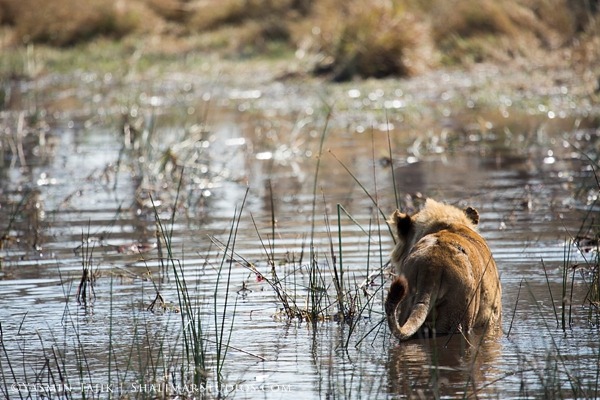Just recently National Geographic Wild hosted Big Cat Week, a whole week dedicated just to those fabulous felines who are facing drastic declines in population. Highlighting cheetah, lions, tigers, leopards and more, it was a week I looked forward to, especially having recently visited South Africa and Botswana to see and photograph many of these animals in their natural habitats.
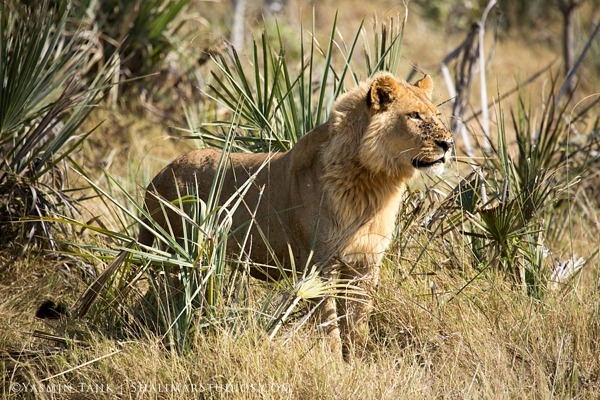
Yes these animals are magestic, and the lions are without a doubt the iconic predator associated with the African continent. But they are in deseperate need of help before they become extinct. Born from the idea of National Geographic Explorers-in-Residence, Derek and Beverly Joubert, The Big Cat Initiative was created to support on-the-ground conservation and educational projects. Based in Botswana, their award-winning videos, movies and photos have spread across the globe to raise awarenesss and teach us all the importance of saving these rapidly declining populations which have dwindled from about 450,000 in the 1940's to now as few as 20,000. (Check out this interactive lion decline map).
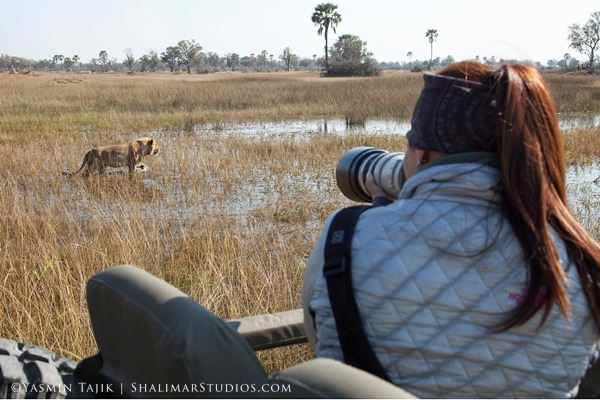
And so on one of my morning game drives in Botswana, I was lucky to come upon a juvenile male lion in the Okavango Delta. As we started tracking him through the waters, we quickly realized he was tracking a herd of buffalo in hopes of making a kill. But watching him stalk the herd was not the only highlight of our morning drive, it was witnessing this beautiful creature's adaptation to aquatic living. And just as the buffalo herds and other prey cross the waters, so have the lions learned to adapt crossing the waters and swimming in the Delta.
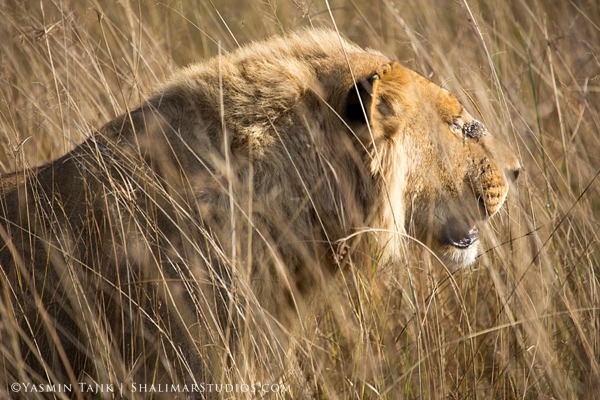
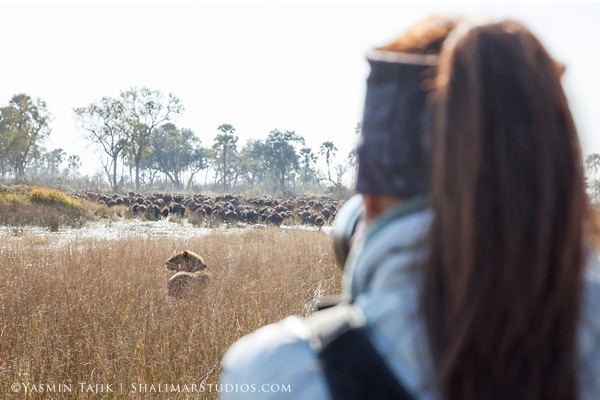
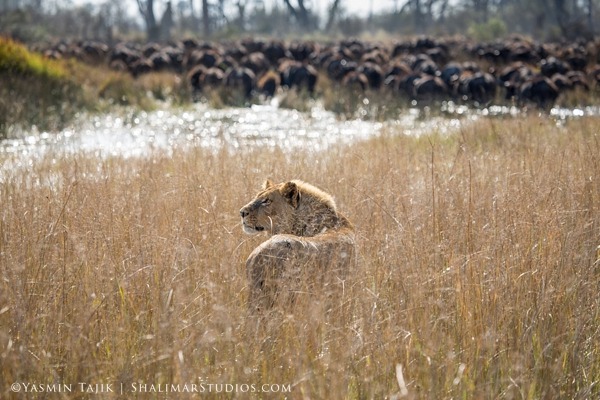
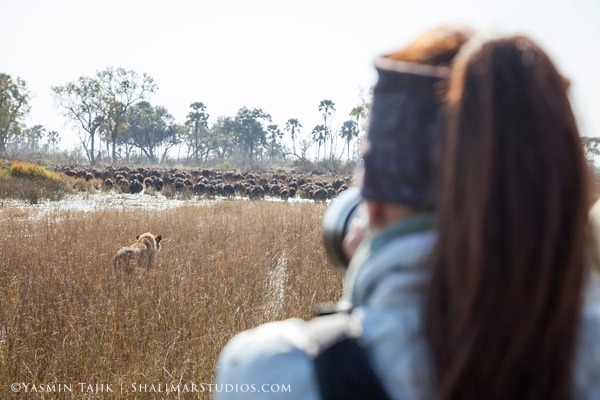
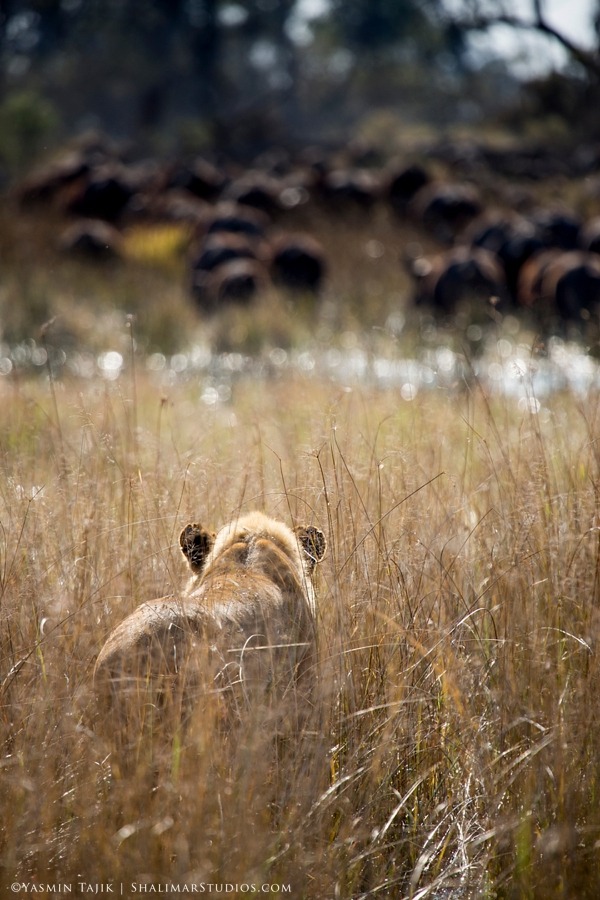
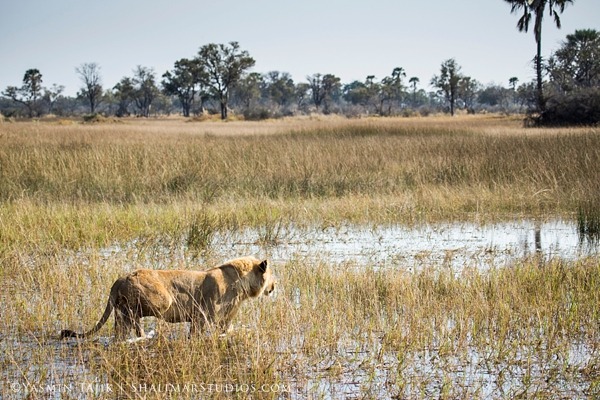
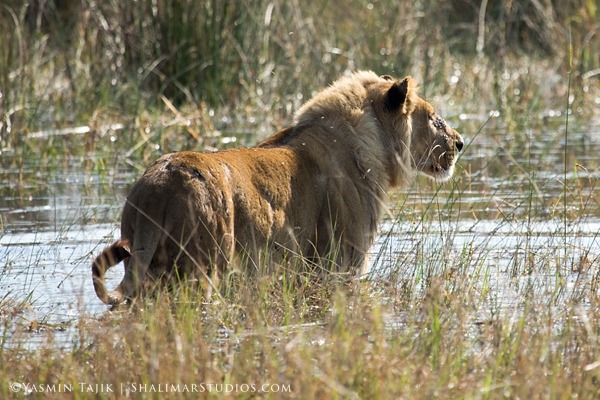
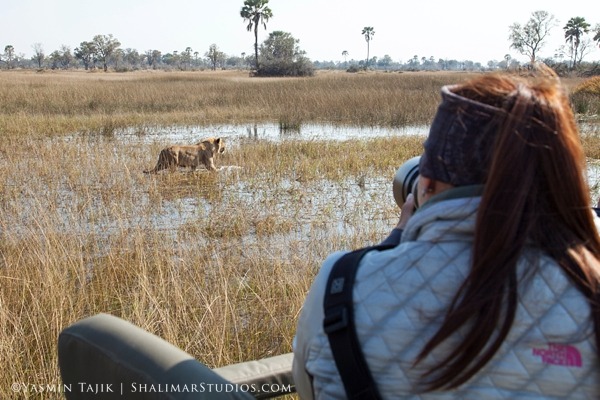
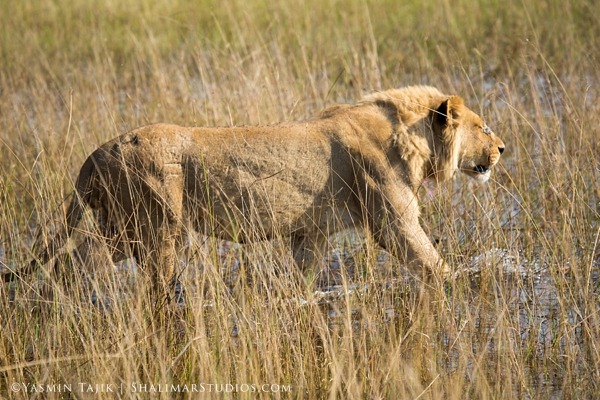
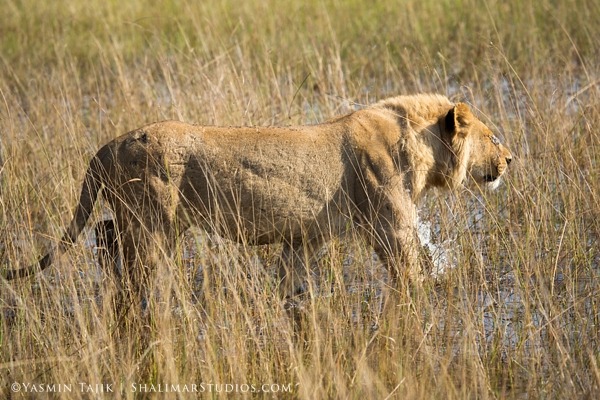
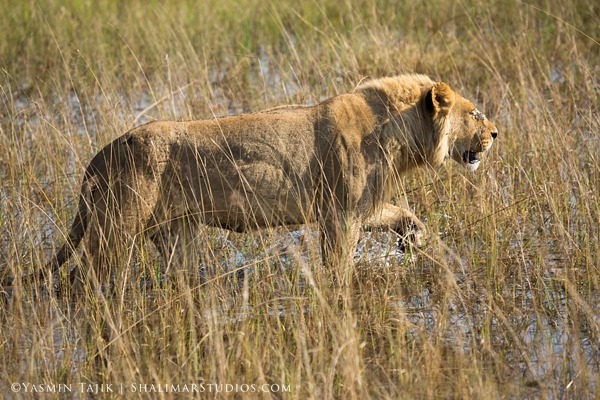
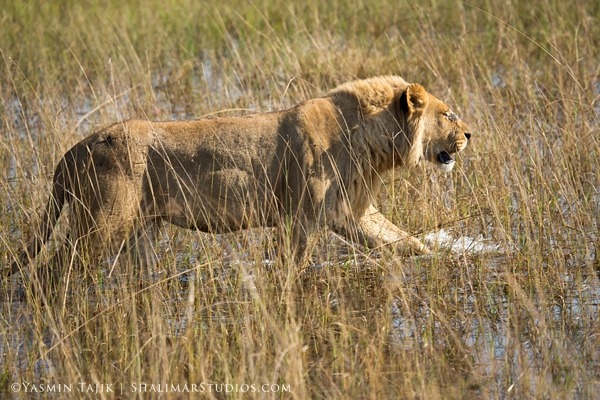
Having adapted larger chest plates and stronger upper body strength has allowed these lions to charge through the waters of the Delta when chasing prey. Although we did not witness a successful kill on this drive, it certainly was an unforgetable experience to see one of these iconic lions in the waters of the world famous Okavango Delta. Sharing these images with you all, is just one way we are doing our part to spread the word, raise awareness, and help save these magestic animals from extinction.
